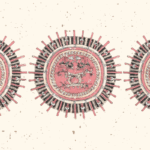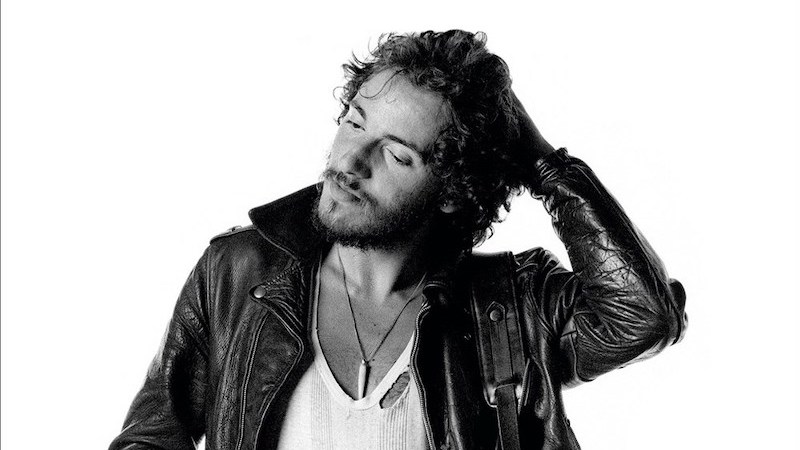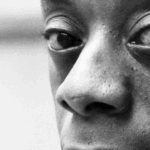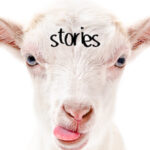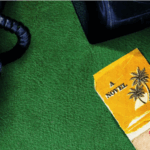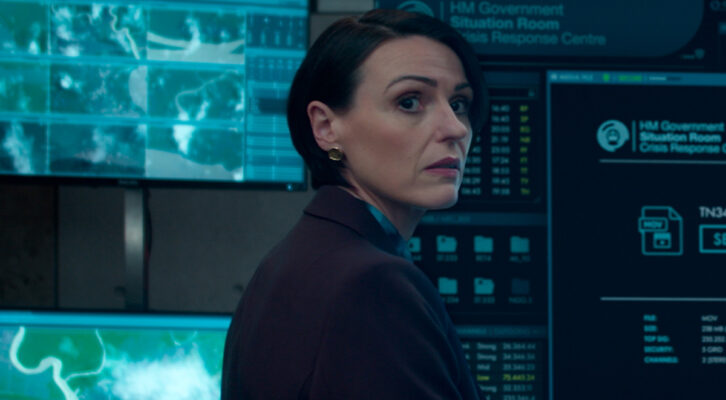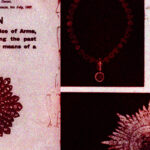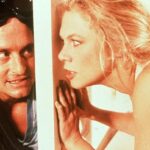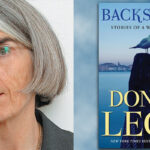If You Want To Write, Here’s the Book For You
In Praise of Brenda Ueland's Prescient Feminist How-To
I first heard of Brenda Ueland and her book If You Want to Write: A Book About Art, Independence, and Spirit, many years ago, shortly after grad school. I filed the title in some mental cabinet along with other how-to-write guides by women—Natalie Goldberg’s Writing Down the Bones and Wild Mind, Anne Lamott’s Bird by Bird, Julia Cameron’s The Artist’s Way—and didn’t think too much more of it. I was, in those days, skeptical of such guides (or their valorization); at worst, I was smug. I’d gone to school for this stuff. I didn’t need (or shouldn’t want) them to spur me on. Right?
Fast-forward. Time has done its thing, left me reeling. I am—wait for it—older now, and still wrestling—happily, mostly—with this elusive thing known as the writing life. Only now there’s a child in the house and fewer hours than ever to devote to creating for creating’s sake. The students I teach are often in positions vis-à-vis their writing much like my own, so I stay (again, happily) on perpetual hunt for wisdom to pass along to them. Recently I found myself cracking open If You Want to Write, curious as to what Ueland might have to offer. What I discovered is a book that’s not so much the sister of those other best-known inspirational guides as arguably their ur-text.
First published in 1938, If You Want to Write is a distant predecessor to modern creativity guides, a robust book-industry niche that spans both the Personal Growth/Self Help and Business genres. These guides offer a bewitching blend of motivation and practical tips that are irresistible to some writers, especially novices or those looking to rekindle the creative fire. While some specifically address writing, more often they speak to artistic endeavor in the broadest sense. Ueland’s work prefigures them all. Sub almost any other art in for “write” in her book’s title and its message still fits. Fiona McCrae, director and publisher of Graywolf Press, which has published If You Want to Write since the mid-1980s, says the book has sold well at museum stores, which suggests it “speaks to a wide range of creative artists.”
Decades before Twyla Tharp preached The Creative Habit, or Austin Kleon urged us to Steal Like an Artist, before Steven Pressfield launched The War of Art, and before 99U instructed us to Manage Your Day-to-Day: Build Your Routine, Find Your Focus, and Sharpen Your Creative Mind, Ueland urged her readers to shake off fear, to write steadfastly and from their true selves, to persist through failure. “Work freely and rollickingly as though [you] were talking to a friend who loves you,” she writes. “Mentally (at least three or four times a day) thumb your nose at all know-it-alls, jeerers, critics, doubters.”
Writing, she argues, should be “not a performance, but a generosity.” Wrong turns and changes of heart will, and should, be part of the journey:
[Y]ou must freely and recklessly make new mistakes—in writing or in life—and do not fret about them but pass on and write more. Active evil is so much better than passive good, which is just docility, feebleness, timidity.
And do not try to be consistent, for what is true to you today may not be true at all tomorrow, because you see a better truth.
Her take on art-making is above all fiercely democratic, and as such, one of timeless allure. “Brenda Ueland has a very inclusive message: that we all have something beautiful to say,” observes McCrae. “She leads from the heart and inspires ambition combined with integrity.”
The writer and professor Alice Kaplan, whose fascinating and thoroughly researched examination of Ueland’s life, “Lady of the Lake,” appeared in The American Scholar in 2007, called If You Want to Write “a beguiling book,” one that “has given thousands of people with no elite education or literary culture encouragement to express themselves and specific strategies for getting down to work.” She continues: “And for professional writers, it’s a healthy corrective to self-conscious prose and perfectionism. At its foundation is a contradiction: Don’t listen to teachers, the author warns, and then she proceeds to teach.”
Ueland’s writing retains a singular charm, her prose clean and ardent, her argument free of the cobwebs one might anticipate, given its age. Several passages seem tailor-made for excerpting and posting online as bite-size inspirational image-graphics. (A Pinterest search for her will be fruitful.) When I picked up If You Want to Write I was immediately struck by its voice: urgent, uncompromising, faintly maternal. Who was this woman? I developed a distinct mental image and found it wasn’t far from the truth. A portrait from the Minnesota Historical Society, where Ueland’s papers are archived, shows the writer in a white blouse: short dark hair, strong jaw, sharp gaze, straight spine. I imagine her striding across a classroom, pausing to press her palms to a desktop, arms stiff as she hammers home some point. I see a cigarette waggling. She writes:
How does the creative impulse die in us? The English teacher who wrote fiercely on the margin of your theme in blue pencil: “Trite, rewrite,” helped to kill it. Critics kill it, your family. Families are great murderers of the creative impulse, particularly husbands. Older brothers sneer at younger brothers and kill it. There is that American pastime known as ‘kidding’—with the result that everyone is ashamed and hang-dog about showing the slightest enthusiasm or passion or sincere feeling about anything. But I will tell you more about that later.
Elsewhere, she addresses her reader further on the topics of self-esteem and stifled ambition:
You see I am so afraid that you will decide that you are stupid and untalented. Or that you will put off working as so many wonderfully gifted people do, until that time when your husband can retire on full pay and all your children are out of college.
This passage, which comes early in If You Want to Write and is more or less echoed a number of times in the book, clarifies both Ueland’s intended reader and her abiding concern for same. Such direct overture to an audience of aspiring women writers makes Ueland’s work overtly feminist, particularly for its time; this is perhaps the book’s greatest contrast with modern creativity guides. But while Ueland’s rhetoric may seem dusty, suited to the struggles of a bygone era, her solicitude strikes a tender chord still today. I recall a talk by Dorothy Allison at the AWP conference just a few years ago, in which she begged the mostly female audience to put their writing before housework. The room broke out in tears and a roaring ovation.
* * * *
Brenda Ueland, born on October 24, 1891, was the daughter of the prominent suffragist Clara Ueland, and a graduate of Barnard. After college, she cut her teeth in journalism as the first female reporter at the Minneapolis Tribune, then returned to New York to continue a career in writing that would sustain her from that point forward. She enjoyed the bohemian life in Greenwich Village; she married and had a daughter, Gabrielle; but after a decade with her husband, she divorced him. For years she supported herself and Gabrielle with her writing. She eventually returned to Minneapolis, where she would continue to write and also taught writing classes, an experience that shaped the ideas gathered in If You Want to Write, where several samples of her students’ work appear. She would marry and divorce twice more.
Ueland’s path, mapped out of independence and grit and eccentricity and passion, may not have mirrored that of the majority of her students. But she understood their needs and took their advocacy seriously, and it’s safe to presume that her message to readers was fueled also by the challenges encountered through a lifetime of feminist trailblazing. What’s surprising is how much her advice resonates in popular discourse on the power and pleasures of art-making, self-motivation, conquering fear, and living mindfully, authentically, intentionally. Were she with us still, you can imagine her employing the term “self-care.”
However, at its initial publishing, If You Want to Write did not win many critics’ favor. (Little surprise, though, considering Ueland’s bitter assessment of their kind therein.) As Kaplan notes, “The Saturday Review of Literature attacked the idea that most people can write, complaining that Ueland was ‘holding out false hopes to the untalented.’ Let the mediocre writers stick to reading, they advised.”
But in 1987, two years after Ueland’s death, when Graywolf reissued the book, Kaplan notes that it became “an instant bestseller” in “an era when more and more Americans were taking writing classes, and when self-help books of all kinds had become a niche in the literary marketplace.”
Fast-forward: While 21st-century publishing has largely discarded “Self Help” for the less beleaguered-sounding “Personal Growth,” the genre remains strong, albeit with a different tone to match its new name. It has found yoga; it has found mindfulness; it has found the therapeutic value of art. It has designated creativity, or “making” of all kinds, a strategy by which any one of us can find our better self, can build a better career, calling, life. The wisdom found in If You Want to Write seems as relevant as ever.
* * * *
Just as I was dipping deeper into Ueland, a new book by Elizabeth Gilbert, Big Magic: Creative Living Beyond Fear, started to generate pre-pub buzz. Gilbert is a guru for millions who read and loved her bestselling memoir Eat Pray Love, and as I read Big Magic: Creative Living Beyond Fear, I could see she had written another big hit, sure to attract a new legion of admirers, myself included. I also saw that Gilbert’s new book shares many parallels with Ueland’s best-known work. In fact, it seemed impossible not to interpret Big Magic as something of a 21st-century remake of If You Want to Write, or to imagine Elizabeth Gilbert and Brenda Ueland kindred spirits. To read them in parallel is to marvel at the extent to which creativity talk has changed very little in more than half a century, sociocultural revolutions notwithstanding. Perhaps it’s not that Brenda Ueland was ahead of her time, but that the desires and frustrations she spoke to are ancient and evergreen for artists. (It should also be noted that Ueland’s thinking draws heavily from the writings of William Blake.)
Big Magic ripples with Gilbert’s enthusiasm, choice metaphor, and humor. (Another writer I know described reading it as “eating candy.”) A catchy title and a cover exploding in color are powerful come-ons; inside, Gilbert’s spirited prose and the book’s organization—structured for snacking, you might say, with brief sections like mini-TED talks put to the page—are perfectly calibrated for a modern readership. And if nowhere is it stated so overtly as in If You Want to Write, the book’s particular target audience seems clearly to be, like Ueland’s, women.
And like Ueland, Gilbert swears by the life-changing potential of creative practice: “A creative life is an amplified life,” she writes. “It’s a bigger life, a happier life, an expanded life, and a hell of a lot more interesting life. Living in this manner—continually and stubbornly bringing forth the jewels that are hidden within you—is a fine art, in and of itself.”
Now take Ueland, who writes, “Writing, the creative effort, the use of the imagination… will become a wonderful blessing if you use it. You will become happier, more enlightened, alive impassioned, lighthearted and generous to everybody else. Even your health will improve. Colds will disappear and all the other ailments of discouragement and boredom.”
That’s just a taste. The comparisons stack right up. Both writers are staunch populists regarding creative production; both invoke the divine; both urge a playful attitude toward creativity. (Ueland: Be like “a child stringing beads in kindergarten—happy, absorbed, and quietly putting one bead on after another”; Gilbert: “Stop treating your creativity like it’s a tired old unhappy marriage (a grind, a drag) and start regarding it with the fresh eyes of a passionate lover.”) Both tackle fear and draw from the greats, Ueland quoting Blake, Tolstoy, and Van Gogh, while Gilbert ushers in Jack Gilbert (no relation) and Tom Waits. And both in their own way beseech readers on the one point aspiring writers can never hear too often: to hell with rejection; press on.
* * * *
Another writer who has certainly inspired her readers to tell their own truths—and who knows from Blake and the divine and general feistiness—is the poet and memoirist Mary Karr, and she too has a new book on the shelves this fall, The Art of Memoir. Karr’s book is explicitly a craft-of-writing book rather than a creativity guide, and she does not position herself as pep-talker the way Gilbert and Ueland do. But her prose comes from the gut, and the grip her writing holds on many readers has everything to do with her down-to-earth voice, its very cadence and vernacular suggesting you, too, can tell your story, in your words. For writers ready to grapple with the seriously tough tasks that writing a memoir presents, she’s every bit the spiritual guide. If anything binds these three besides a commitment to the writing life and the fact that all have played a mentoring role through their writing, it is each one’s singularity of voice, ardent and inimitable, unsuppressed.
With Karr in mind—her book The Liars’ Club often identified as the memoir that kicked off a national craze for same—it’s interesting to note Kaplan’s take on Ueland’s “pioneering” second book, Me, a memoir:
…one of the first in an autobiographical tradition, now so central to American writing, that gives value to everyday experience. Ueland wants to account for her relationships, to describe her working life, her endless quest for discipline and for understanding the world. Me shows her lyrical gifts, her penchant for bragging, her self-absorption, and, in the end, a knowledge of her own shortcomings that endears her to the reader.
Perhaps she was ahead of her time after all. But Kaplan also points out flaws in Ueland’s better known work, calling it “willfully naïve about literature and the literary enterprise”:
Ueland is so enthusiastic about feelings and originality in writing that she ignores, or denies, the part of writing that is based on imitation, that derives its strength from literary tradition—the part of writing that involves copying models from the past or imitating what you admire.
No one could accuse Karr of blindness to literary tradition. The Art of Memoir’s strength lies not simply in Karr’s voice and personal stories, though these are seductive enough to outshine other merits. Its weight and ultimately its usefulness derive from Karr’s knowledge of her field, her sifting and sharing of examples from memoirs that have dazzled and directed her over a lifetime of writing and teaching.
* * * *
Ueland died on March 5, 1985, at the age of 93. Kaplan recalls her as a recognizable figure in Minneapolis, known for the long walks she took around Lake Harriet. Her writing life had its rough patches—Kaplan reveals one egregious error in particular that might have driven a less determined writer away from the page forever (I’ll leave this story to Kaplan’s telling). She was never a celebrated literary figure in her time, as both Gilbert and Karr are now. Only after her death, and with a second life for her first book in a time when the culture was primed for it—did her name rise to something like prominence.
I like to envision the impossible: Ueland, Gilbert, and Karr meeting for a drink. Let’s guess Scotch for Ueland, a floral cocktail for Gilbert. Karr, of course, would stick to coffee. Surely they would be fast friends, not unlike Gilbert and Ann Patchett, the buddies whose magical kiss upon introduction Gilbert chronicles in Big Magic. Ueland would lock Gilbert in her piercing gaze; Gilbert would have Ueland throwing back her head in throaty laughter; Karr would out-cuss them both. Surely, these sages of the ageless thing we call creativity would get along famously.
Listen: Elizabeth Gilbert talks to Paul Holdengräber about vocation over vacation, complaining as the enemy of inspiration, and overcoming self-loathing.




